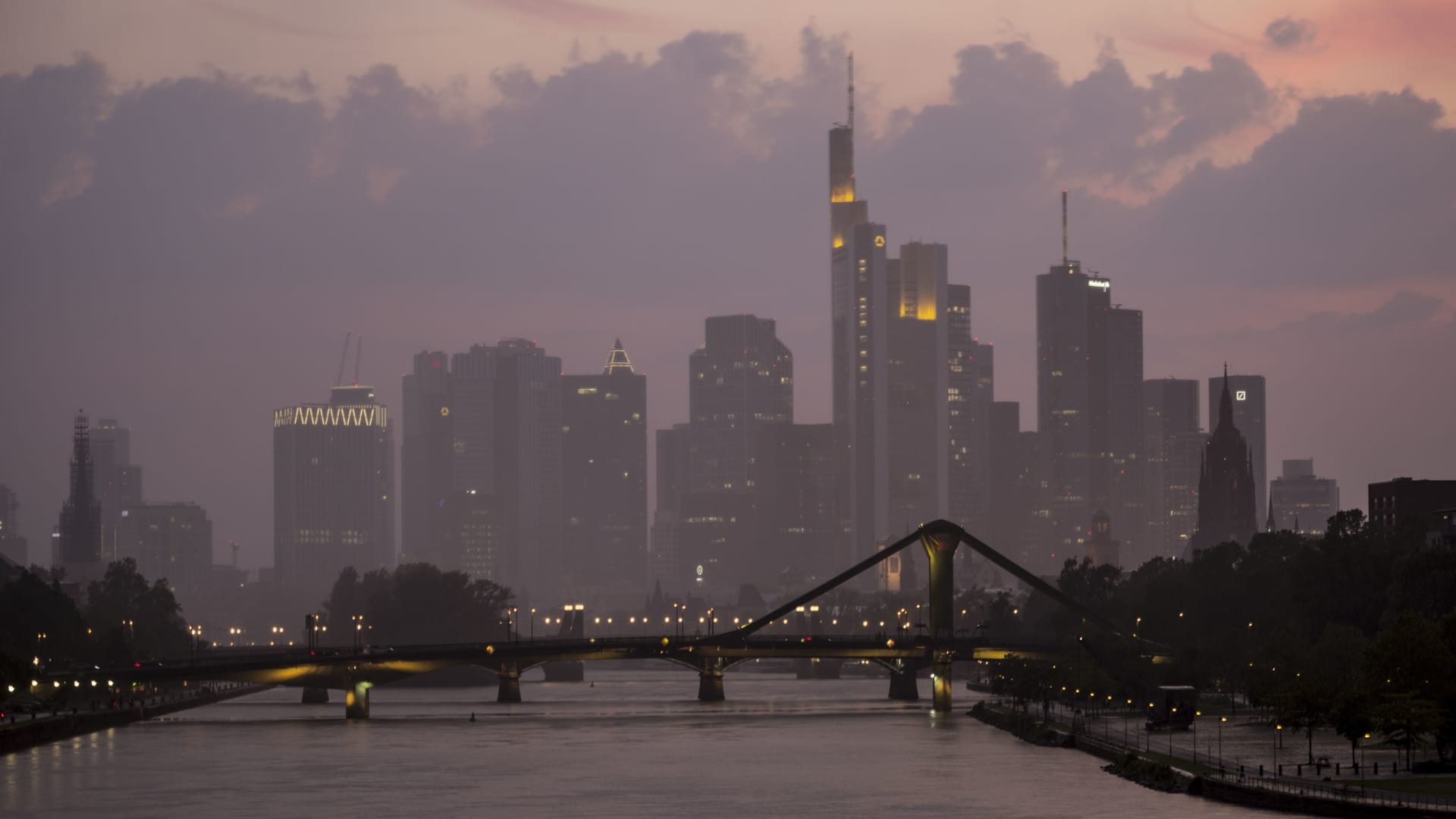Germany's opposition party claims that the country's recession is a result of the bureaucracy surrounding its green energy policies, which are led by The Greens in coalition with the Social Democrats, and warns that the situation will worsen if the excessive bureaucracy and high energy prices are not addressed.
Germany's economy is in a recession, with zero growth since the third quarter of 2022 and a cumulative drop of 0.5% in GDP, which is likely to continue for another half year, impacting other European economies; the country's poor performance can be attributed to its energy policy and investors are also affected.
Europe is facing a "double crisis" due to the geopolitical impact of Russia's invasion of Ukraine and the subsequent economic hit, but the region can avoid a recession by securing alternative energy supplies and providing relief to consumers facing high energy costs.
Germany, once hailed as Europe's economic powerhouse, is now facing structural problems and could be on the verge of decline, according to experts, with factors such as stagnant GDP, high inflation, an aging population, overdependence on exports, and underinvestment contributing to its current predicament.
Rising energy prices, driven by factors such as extended production cuts and deteriorating ties between the US and Saudi Arabia, will have negative consequences for Europe, potentially impacting support for Ukraine and slowing down efforts to reduce carbon emissions.
Volkswagen is facing significant challenges in the global electric vehicle market, particularly in China, as it lags behind local competitors and Tesla, putting its position as an industry leader and German economic stability at risk.
Germany's deep economic troubles, including three consecutive quarters of negative growth, could have significant global implications, especially considering its role as the main driver of economic growth in the euro zone and its high exposure to the Chinese economy.
A bitter standoff between France and Germany over nuclear energy highlights the disruption caused by the region's energy crisis and the EU's green shift, as both countries seek to avoid being left behind in the race for carbon neutrality while maintaining industrial competitiveness.
Germany, once an economic powerhouse, is now the worst-performing major developed economy due to factors such as the loss of cheap Russian natural gas, a slowdown in trade with China, and government inaction on chronic problems, leading to concerns of deindustrialization and the need for urgent solutions.
Germany is facing an economic contraction due to challenges in the manufacturing sector, a disappointing China reopening boost, and higher energy costs, leading to a recession in Europe's largest economy. However, there are still some positive aspects, such as opportunities in Germany's small and mid-sized companies.
Germany's Green party, led by Annalena Baerbock, is unique for attracting a large share of the vote, occupying the center, and maintaining a consistently hawkish stance on foreign policy; Baerbock's recent trip to the US, including Texas, offered insights into Republican voter support for Donald Trump, Texas' dual energy economy, and the reasons for entrepreneurial and investment growth in the state. However, Germany's energy policy, cyclical economic downturn, digital lag, and infrastructure challenges have resulted in a drop in competitiveness and potential vulnerability to an economic security storm, particularly in the automotive industry with exposure to China. Baerbock's labeling of Xi Jinping as a dictator during her US trip has strained relations further, with potential implications for German car sales and EV production. Germany's efforts to improve competitiveness include using state aid to attract foreign investment and a study by Ursula von der Leyen on the competitiveness of European countries; however, they could learn from small, advanced economies that excel in policy making, capital markets, policy clarity, corporate governance, and coordination with other economies. The larger economies of the world are slower to adapt to changes in the global economy, with the exception of Joe Biden's industrial policy in the US.
